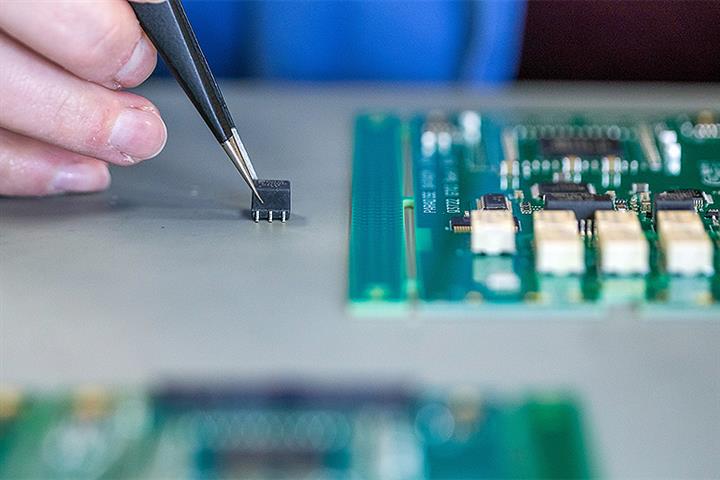 TSMC’s Second-Quarter Revenue Jumps 28%; Chipmaker Sees Tight Capacity Into 2022
TSMC’s Second-Quarter Revenue Jumps 28%; Chipmaker Sees Tight Capacity Into 2022(Yicai Global) July 16 -- Revenue at Taiwan Semiconductor Manufacturing Corporation, the world’s biggest chip foundry, jumped 28 percent in the second quarter because of increasing demand from high-performance computer makers and auto manufacturers.
Revenue was NTD372.1 billion (USD13.3 billion) in the three months ended June 30, according to the earnings report the Hsinchu-based company released yesterday. That was a little above its own expectation.
Capacity is expected to remain tight throughout the year and into 2022, driven by strong demand in advanced and special technologies, Vice Chairman and Chief Executive C C Wei said at a conference call.
Second-quarter net income came in at NTD134.36 billion (USD480 million), up 11 percent, with a net profit margin of just over 36 percent.
In terms of revenue by technology, shipments of 5-nanometer wafers accounted for 18 percent of total wafer revenue, while 7-nanometer wafers took up 31 percent. Advanced technologies, defined as 7-nanometer and more advanced technologies, accounted for 49 percent of total wafer revenue.
In terms of revenue by platform, smartphones accounted for 42 percent of the market share, PHC made up 39 percent, while Internet of Things, automotive and DCE had 8 percent, 4 percent and 4 percent, respectively.
TSMC expects third-quarter revenue of between USD14.6 billion and USD14.9 billion, which represents an 11 percent sequential increase at the midpoint, with gross profit margin expected to be between 49.5 percent and 51.5 percent.
For 2021, TSMC forecast that the overall semiconductor market, excluding memory, will expand by about 17 percent while foundry industry growth is tipped to be about 20 percent. The firm itself is expected to grow above 20 percent.
“We are firming up our wafer pricing,” Wei said, citing manufacturing cost challenges due to expansion and rising material and basic commodities cost. “Our pricing strategy is strategic, not opportunistic.”
He also mentioned the shortage of chips in the automotive industry. TSMC increased its output for MCUs in automotive semiconductor products by about 30 percent in the first half from a year earlier, and expects full-year output for MCUs to increase by 30 percent.
“We expect automotive component shortage from semiconductors to be greatly reduced for TSMC customers starting this quarter,” Wei said.
Editor: Peter Thomas